 Giuseppe Verdi |
SATURDEE OPRY
LINKS |
 Giacomo Puccini |
 Giuseppe Verdi |
SATURDEE OPRY
LINKS |
 Giacomo Puccini |
|
Saturdee Opry Links # 141:
All-Beauty Edition
Saturdee Opry Links' All-Beauty Edition is posted, whether you
like it or not. Beautiful overture, ten beautiful selections,
plus beautiful extras and beautiful encore. SOL is now going to
have some beautiful beer.
Saturdee Opry
Links Overture
"Marriage of Figaro," by Mozart.Like a drink of cool water. https://www.youtube.com/watch?v=5tcE0hM1Gtc 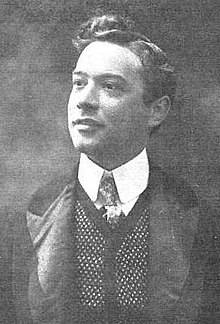

Enrico Nani Anne Sophie
Von Otter
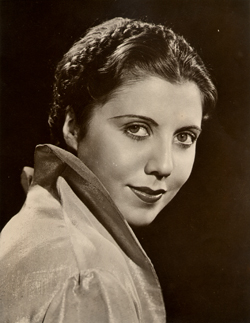
Rose
Bampton
Fernandino
Cineselli
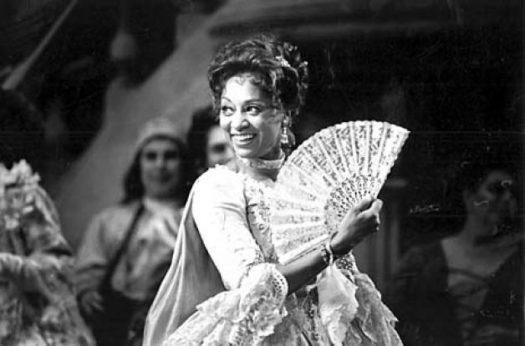
Reri Grist It's the All-Beauty edition, a badly needed reminder (at least for me) that the human race does more than kill and destroy. We open with the forgotten baritone of yore, Enrico Nani, who spent most of his early 20th century heyday on stages in Italy and South America. If he were alive today, he would be acclaimed throughout the world, I'm sure. His was a sonorous, measured voice and style well geared for underscoring the nobility of the great Verdi baritone arias---including this one, Dio di Giuda, ("God of Judah"), from "Nabucco." Hearing this heart-rending rendition is affecting and humbling---the latter in respect to human devotion to creating wonderful art. Here is the aria, complete with audio snap, crackle, and pop. A plum of a performance. Role: Nabucco, the King of Babylon Setting: a room in Nabucco's palace, ancient Babylon Synopsis: Nabucco has not regained full sanity after he was struck down by a fit (or Jehovah) in Part II. He believes that his only hope for salvation is to pray to Jehovah for forgiveness and strength. The prayer does not go unanswered and Nabucco soon regains his full strength and sanity. Unlike SOL. https://www.youtube.com/watch?v=Mm4wd_mR2SE Translation: https://www.opera-arias.com/verdi/nabucco/dio-di-giuda/ 2. Verdi famously praised his predecessor, Vincenzo Bellini, for the "broad curves" and flowing lines of his melodies. Bellini was a pioneer of such writing during his short but prolific life, in the early 19th century. Bellini arias might be taken for granted as merely "pretty" to our ears today, but they were revolutionary when new. "There are," Verdi wrote, "extremely long melodies as no-one else had ever made before'." (One can easily detect their influence on Verdi. See post # 1, for example.) Here is one such work, sung inimitably by Franco Corelli, a tenor perhaps thought of in terms of power, but actually a masterful singer in every aspect. This is "A te, o cara," from Bellini's "I Puritani." ("To you, dear one.") https://www.youtube.com/watch?v=TzGzZ6y2QQ0 Setting: In the Hall of Arms in the fortress near Plymouth, England, during the English Civil War (1649) Synopsis: Lord Arturo Talbot enters the Hall with squires bearing presents, including a beautiful white veil, for Elvira Walton, his bride to be. He sings of the impossible love he always had for her. Translation: http://www.aria-database.com/search.php?individualAria=835
3.
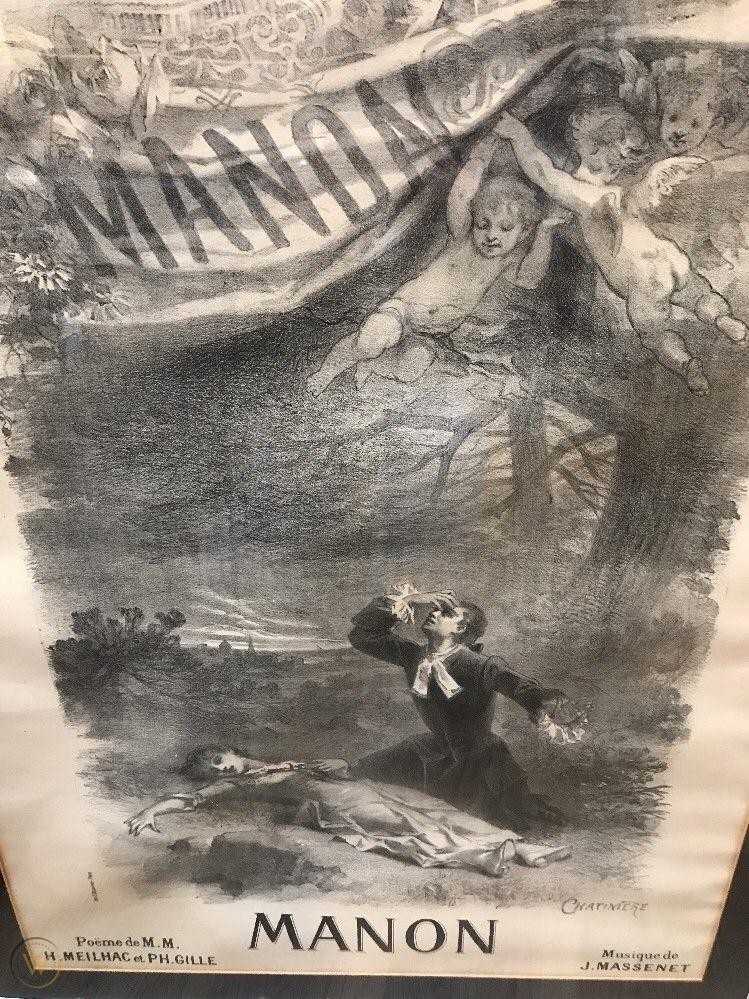
The forgotten tenor, Ferdinando Cineselli, spent
his career in Italy and South America, for the most part, in the
1920's and early '30's. That he managed to make a few dozen
recordings secured his legacy (perhaps with an assist from his
hair), and is a gift to all. Cineselli was not the most powerful
or naturally gifted singer, but he made a great deal out of what
he had---singing with plaintive emotion and lyric magnetism. His
style is also exemplary of that Italian "sob" factor, take it or
leave it, on display here in the incredibly beautiful, touching
aria, "Je Suis Seul/ Ah! fuyez, douce image" ("I am alone/
Vanish, sweet memory") from Massenet's "Manon." Sung in Italian.
https://www.youtube.com/watch?v=31vH92GRtlUSetting: The reception room in St. Sulpice church, France, 18th century Synopsis: After entering the seminary in order to forget about Manon, Des Grieux finds that he is unable to forget his love for her. He prays to God to remove this shadow from his heart. Translation: ANNND. . .if you would like to hear it sung in French, here is the Swede, Jussi Bjorling. https://www.youtube.com/watch?v=KgQF_uKmRIg 4. As I have too often remarked here, Mahler should have written an opera. His skill and instinct for vocal writing was, in my puny opinion, his greatest gift. The various Mahler song cycles are without peer in their deep atmospheres, expressiveness---certainly complexity of orchestration. They are, obvious to say, operatic, and they illustrate the content of their poetry with singular depth and color. Here is one such gorgeous example, "Die zwei blauen Augen von meinem Schatz" ("The two blue eyes of my love") from ""Lieder eines fahrenden Gesellen" ("Songs of a Wayfarer"), from 1884-85. The soprano is Anne Sophie Von Otter. Right, I agree with you: it is impossible to listen to this without thinking of Ukrainian refugees. https://www.youtube.com/watch?v=PM4LTgl2J1o Translation: https://www.oxfordlieder.co.uk/song/1084 NOTE: Mahler did finish Die Drei Pintos, an unfinished Weber opera, and allegedly started work on a couple of his own, but never got very far. More information here: SOL EXTRA! The Operatic Punch in Mahler's Symphonies. Give a listen---don't be intimidated. You'll understand. 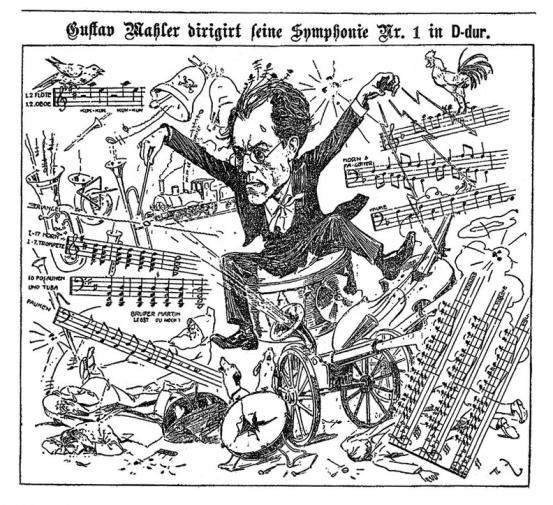 5. Rose Bampton took a kind of left turn on her way to becoming a soprano, courtesy of laryngitis. The venerable mainstay of the Met for decades started out as a soprano, but downshifted to mezzo after losing her voice to a virus. She debuted at the Chautauqua Opera, (see end of post), in 1929, in the mezzo role, Siébel, in Gounod’s “Faust"---and sang only mezzo parts all the way until 1937. But her success was somewhat stunted. Lo and behold. she married Wilfrid Pelletier, a conductor at the Met, and, feeling under-employed in that house, decided to return to soprano repertory. The gamble paid off. After debuting as the lead in Verdi's "Il Trovatore," she blossomed into a stalwart, redoubtable soprano, and never looked back. Here she is with the poignant, "Io son l’umile ancella," or "I'm but the humble servant of the Creator," from "Adriana Lecouvreur, by Cilea. If you hear intimations of mezzo here, so do I. She made it to 99, passing away in 2007. From her obit: "But she had a considerable artistic arsenal that included a strong, finely polished voice and a trim, statuesque figure. During her years with the company — she retired in 1950 — her sound was generally regarded as attractive rather than thrilling, but she used it with an intelligence and interpretive flair that made her one of the most distinctive singers of her time." Setting: backstage at the Comédie-Française, Paris, 1730 Synopsis: The Prince de Boullion and the Abbe de Chazeuil meet the company at the Comédie-Française before the show. Although the Prince is the patron of Adriana's main competition as an actress, Duclos, he compliments Adriana. She replies to the compliments by saying that she is only the vessel through which the muses work. You know, like SOL. https://www.youtube.com/watch?v=7glV86R735g Translation: About the Chataqua Movement: https://en.wikipedia.org/wiki/Chautauqua
6.
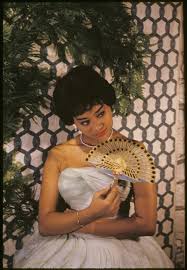 The wonderfully accomplished lady grew up, humbly enough, in the East River Housing Projects in Spanish Harlem, a predominantly Italian, Puerto Rican, and Polish and African-American neighborhood---and went on to attend the High School of Music and Art, later graduating with a Bachelor of Arts in Music from Queens College. From there---owing to her winning coloratura charm, came small roles on Broadway. Just like that. And, also just like that, Leonard Bernstein grabbed her to sing "Consuelo" ("Somewhere") in the stage production of "West Side Story." Bernstein further enlisted her to sing Mahler's 4th Symphony in one of his "Young People's Concerts" telecasts, and her career was well made. Here she is in a charming clip from Offenbach's "Tales of Hoffmann," yes, in which she plays the wind-up doll, Olympia. This is "Les oiseaux dans la charmille," or "The Birds in the Hedges." A longtime professor of music at various universities, Ms. Grist has long resided in Hamburg with her husband, orchestra administrator Dr. Ulf Thomson. Enjoy her floating, lovely vocal acrobatics. https://www.youtube.com/watch?v=p1B79gySpqk Setting: The parlor room of Spalanzani the scientist, 19th century Synopsis: Spalanzani the inventor winds up Olympia the doll to sing for his guests. She sings this song about the birds and how they sing of the young girl of love. More about Ms. Grist: https://aaregistry.org/story/reri-grist-classic-vocalist-born/ SOL EXTRA! Reri Grist with the song that made her career, in the original cast recording. . . https://www.youtube.com/watch?v=80-DtChQ39U . . .and on stage in 2007! https://www.youtube.com/watch?v=C3HfwHiyNAA 7. 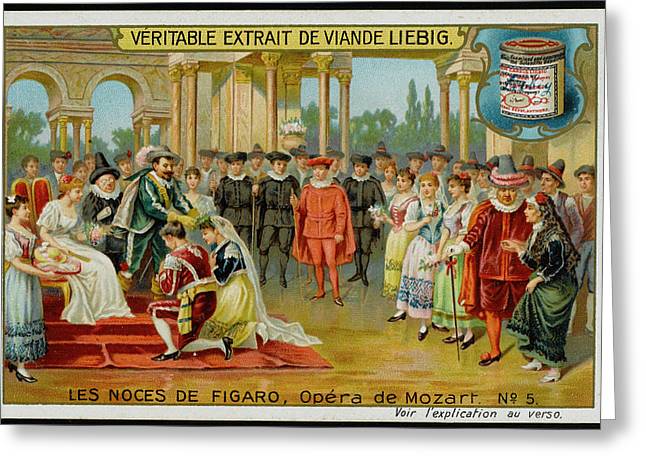 A little more Reri, in the form of the sublime Mozart duet from "Marriage of Figaro," "Sull' aria," or the "letter duet," with the renowned Mozart soprano of yore, Claire Watson. At the Salzburg Festival, 1966. When they sing together, well, that's the stuff, eh? "A little song on the breeze. . ." https://www.youtube.com/watch?v=G2EXGNMq1d8 Performed by : Susanna (Grist---maid to the Countess of Almaviva, fiancee of Figaro) and the Countess Almaviva (Watson---wife of the Count Almaviva) Synopsis : Susanna enters and updates her mistress regarding the plan to trap the Count. The Countess dictates a love letter for Susanna to send to the Count, which suggests that he meet her (Susanna) that night, "under the pines". The letter instructs the Count to return the pin which fastens the letter (duet: "Sull'aria ... che soave zeffiretto" – "On the breeze... What a gentle little zephyr"). Translation: https://lyricstranslate.com/en/sullariache-soave-zeffiretto-little-song-breeze.html 8. Okay, kids, these aren't the "best" exemplars of this duet, though they are perfectly okay. Well, not bad, anyhow. Well. . ..Some (many) people feel that Kaufmann, more or less a baritenor, does weird things with his vocal technique (if you listen to his earlier recordings, you will hear a dramatic and weird change, as if he is now permanently "covered.") And some people feel that Opalais lacks the "bigness" of voice that might be more apt for Tosca. But you know what? (I give up: what?) My main complaint is the abundant presence of Kaufmann's tongue. Here is the love duet from act one of "Tosca," by Puccini. https://www.youtube.com/watch?v=uG4PbAOUq-c Synopsis: Tosca enters and suspiciously asks Cavaradossi what he has been doing – she thinks that he has been talking to another woman. After Cavaradossi reassures her, Tosca tries to persuade him to take her to his villa that evening: "Non la sospiri, la nostra casetta" ("Do you not long for our little cottage"). She then expresses jealousy over the woman in the painting, whom she recognises as the Marchesa Attavanti. Cavaradossi explains the likeness; he has merely observed the Marchesa at prayer in the church. He reassures Tosca of his fidelity and asks her what eyes could be more beautiful than her own: "Qual'occhio al mondo" ("What eyes in the world"). Translation: (search for "Ah, quegli occhi" and begin there.) https://www.translatelyrics.net/en/andrea-bocelli/act-1-duet/21819/ 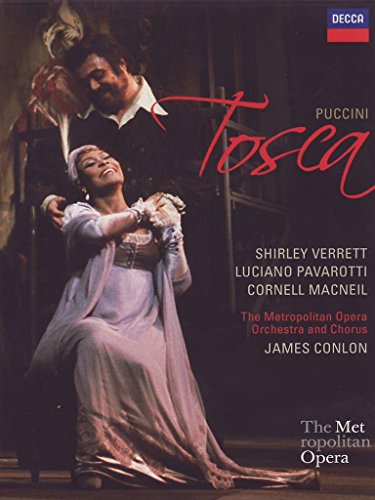
OR, if you prefer to see how it REALLY should be
sung, and on stage. . .Here are Luciano Pavarotti and Shirley
Verrett.
https://www.youtube.com/watch?v=Z3MJBRMsOS4Translation: (start at the top) https://www.translatelyrics.net/en/andrea-bocelli/act-1-duet/21819/
9.
"Beatrice di Tienda" was Bellini's penultimate opera,
following "Norma" and preceding "I Puritani." It was not a runaway
success, but did have some acceptance---and was, curiously, the only
of his operas published in full score during his lifetime.
Apparently there was controversy over alleged similarity to melodies
in "Norma." Well, it was a Bellini opera, so what did people expect?
Anyhow, here is the ethereally beautiful duet (plus one), "Angiol de
Pace," or "Angel of Peace." The singers are Leyla Gencer, Juan
Oncina, Antigone Sgourda.Synopsis: Scene 2: "Ground level vestibule above the castle prisons. Beatrice's maidens and servants emerge from the cells. All are mourning. Sentinels everywhere". . .Beatrice's ladies gather outside the cell while Beatrice prays. In her cell, she affirms that she said nothing under torture. Agnese enters and confesses that it was she who instigated, through jealousy, the plot to accuse the couple of dastardly deeds. She explains that she was in love with Orombello and that she believed Beatrice to be her rival. From his cell, Orombello's voice is heard (Aria: Angiol di pace / "Angel of peace"). Along with the two women, he forgives Agnese as does Beatrice. https://www.youtube.com/watch?v=krFk3k8kaCE Translation: http://www.jcarreras.de/lyrics/beatrice03.htm FINAL BOW:  "Field of Flowers," by Gheorghe Lergucz Yes, we showcased this aria last week, but here it is again, since I'm betting no one remembers, anyhow. SOL opened today's Beauty Edition with a fine baritone, and is now closing with one: Jongmin Park of South Korea. He has a full, resonant, lyrical baritone, if lacking a little on the bottom. Here is that greatest Verdi aria ever composed by Bellini (what?), "Cinta di Fiori" ("Surrounded by Flowers") from "I Puritani." Aria starts around the 2:00 mark. Setting: A hall in the castle near Plymouth, England, during the English Civil War (1649) Synopsis: Giorgio tells the inhabitants of the Castle, at their urging, about Elvira's health. Summary, translation: http://www.aria-database.com/search.php?individualAria=837 https://www.opera-arias.com/bellini/i-puritani/cinta-di-fiori-e-col-bel-crin-disciolto/ About Jongmin Park: https://www.askonasholt.com/artists/jongmin-park/ NOTE: Park is very, very good, but there is no excuse for that last note, none. Unless he was ill. This is more like it. Ruggiero Raimondi: https://www.youtube.com/watch?v=IskLbwLZUYg Saturdee Opry Links Sundee Encore! Capping off the All Beauty Edition is this ever irresistible item, retaining its beauty and charm despite being demographically exploited by commercials and dumbed-down by awful radio stations such as KUSC. The "Bell Song," from "Lakme," by Delibes. The soprano is Sabine Devieilhe. https://www.youtube.com/watch?v=gMO0KFL3E58 French/English: http://www.aria-database.com/translations/lakme02_bell.txt Synopsis : Ordered by her father, Lakmé sings the legend of the pariah's daughter. The girl was walking through the forest at night and comes upon a stranger who has been set upon by wild animals. She rings a magic bell that is on her wand and saves the man, who is actually Vishnu, the son of Brahma the Creator. Vishnu takes her up to paradise for saving him. About the opera: 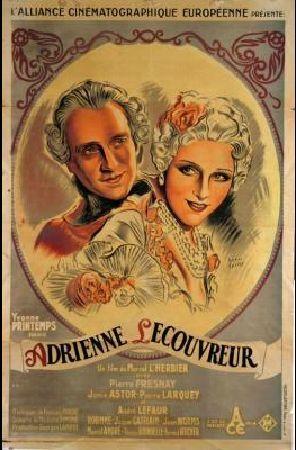
|